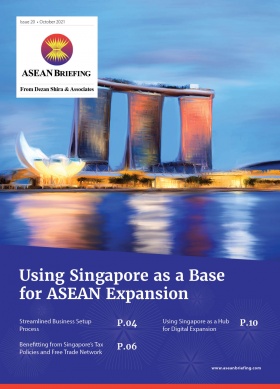The Philippines Issues VAT Exemption for Exporters of Local Purchases
The Philippines issued a value-added tax (VAT) exemption for registered exporters on their local purchases of goods and services through Revenue Regulations (RR) No. 21-2021.
The VAT privilege covers the sale of equipment, supplies, packaging materials, and goods, among others, for a maximum period of up to 17 years. In June 2021, the government announced a VAT charge of 12 percent on those activities under RR No. 9-2021, an implementing regulation of the Tax Reform and Acceleration and Inclusion Act (TRAIN). However, this was deferred in July 2021, due to the pandemic and its impact on the Philippines’ export industries.
RR No. 21-2021 is in line with the provisions under the Corporate Recovery and Tax Incentives for Enterprises (CREATE) Act — the Philippines’ largest fiscal stimulus in history — which offers exporters VAT exemption on their local purchases, among other incentives.RR No. 21-2021 took effect from December 10, 2021.
What services are subject to VAT exemption?
The services performed by a VAT-registered person that is subject to VAT exemption are as follows:
- Sale of raw materials, packaging materials, supplies, inventories, and goods, to a registered enterprise and used in its registered activity;
- Sale of services, including the provision of basic infrastructure, maintenance, utilities, repair of equipment, to a registered enterprise;
- Services rendered to persons engaged in air transport operations or international shipping, including leases of property, provided that these services are exclusively used for air transport operations or international shipping;
- The transport of passengers and cargo by domestic air or sea vessels from the Philippines to a foreign country;
- Sales to persons or entities who are exempted from direct and indirect taxes under special international agreements to which the Philippines is a signatory;
- The manufacturing, processing, or repacking of goods for persons or entity that is doing business outside of the Philippines, and the said goods are subsequently exported and paid for by foreign currency; and
- The sale of power that is generated through renewable resources such as geothermal and steam, hydropower, biomass, solar, and wind, among others.
A registered export enterprise is a corporation, partnership, or other entity established under Philippine laws and registered with an Investment Promotion Agency (IPA). They must also engage in manufacturing, assembling, or processing activities that result in the direct exportation of manufactured or processed products.
Further Reading
- Philippines Senate Passes Bill Allowing 100 Percent Foreign Ownership of Public Services
- Philippines Introduces New Economic Zone Authority Visa for Foreigners
- Indonesia’s Omnibus Law: New Protection and Empowerment Measures for Small Businesses
About Us
ASEAN Briefing is produced by Dezan Shira & Associates. The firm assists foreign investors throughout Asia and maintains offices throughout ASEAN, including in Singapore, Hanoi, Ho Chi Minh City, and Da Nang in Vietnam, Munich, and Esen in Germany, Boston, and Salt Lake City in the United States, Milan, Conegliano, and Udine in Italy, in addition to Jakarta, and Batam in Indonesia. We also have partner firms in Malaysia, Bangladesh, the Philippines, and Thailand as well as our practices in China and India. Please contact us at asia@dezshira.com or visit our website at www.dezshira.com.
- Previous Article One Year in, What to Make of Joe Biden’s Asia Trade Policy?
- Next Article Indonesia Passes Bill to Build New Capital City: Deadline 2024







